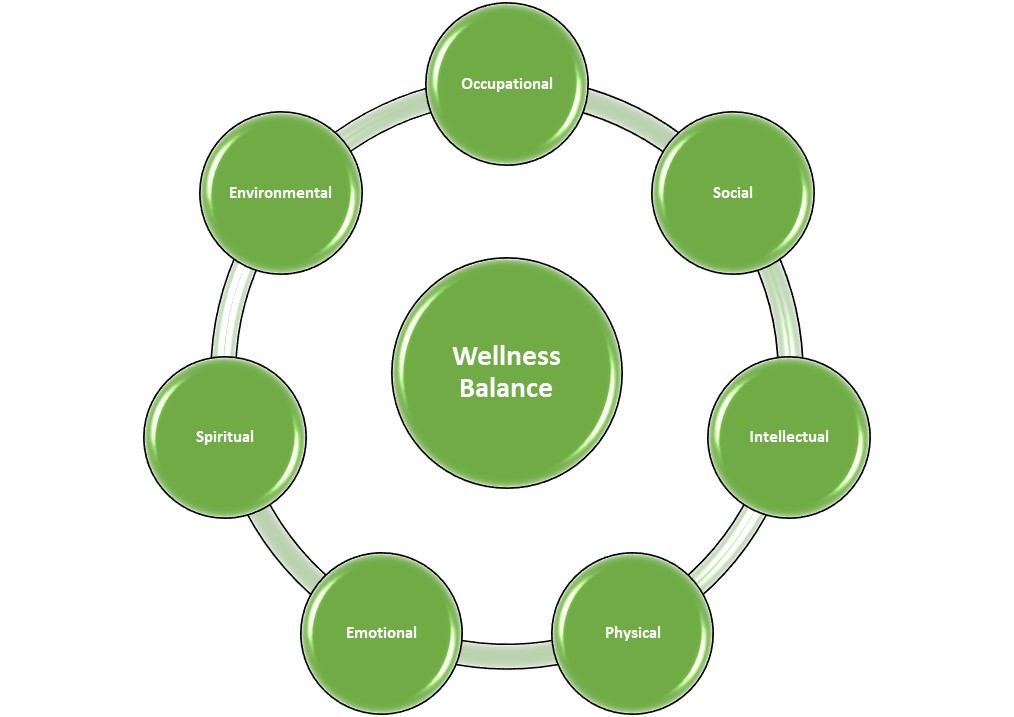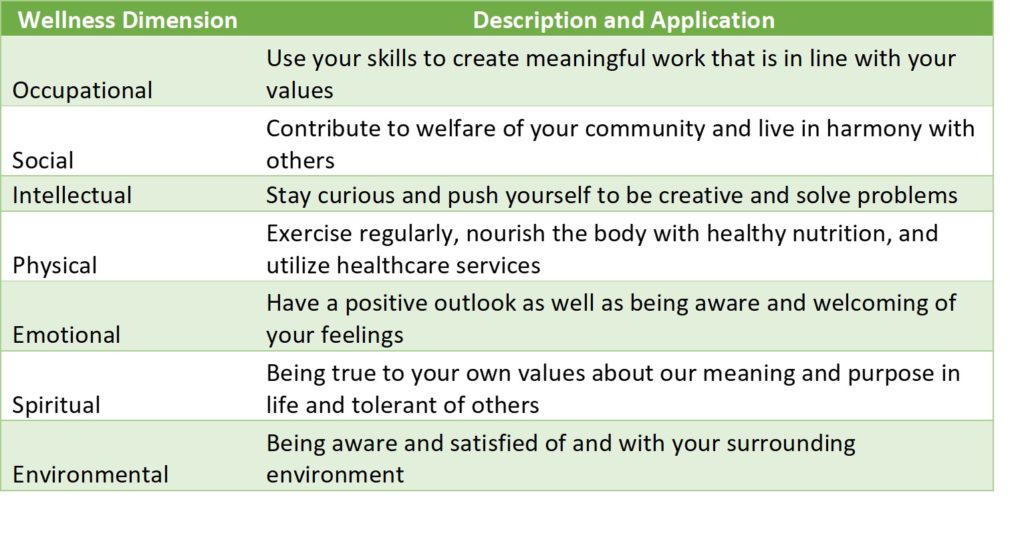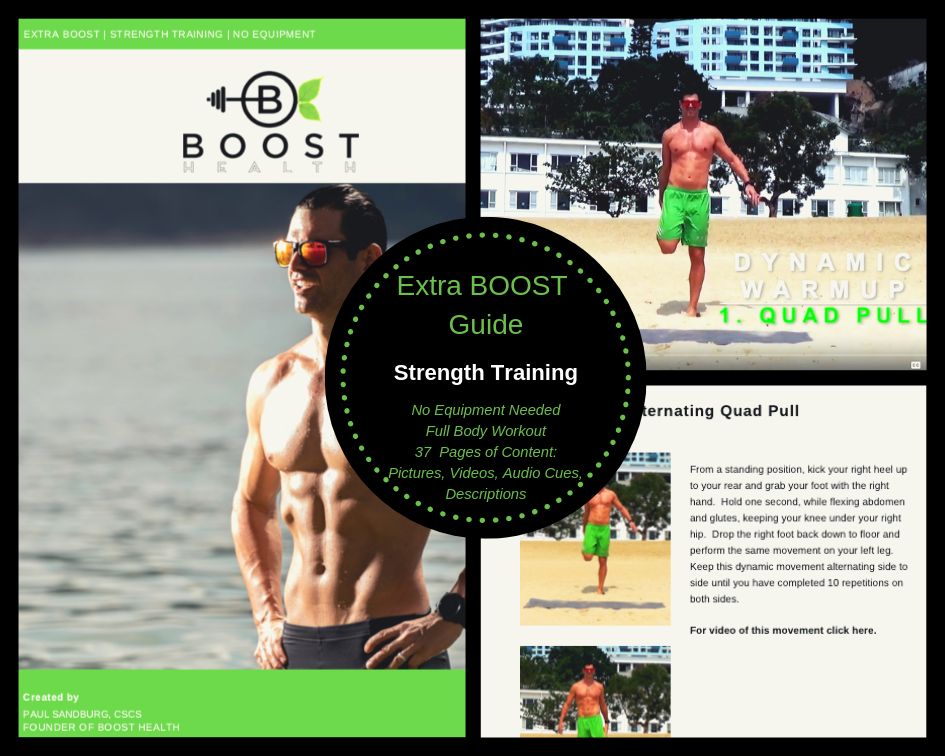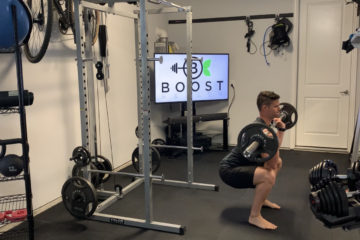Defining the Wellness Dimensions
Finding wellness balance is something I talk about a lot here at Boost Health. It is certainly somewhat intangible and most definitely very individualistic. Since it is so individualistic you can’t really put hard numbers in areas of wellness for folks to achieve, but we can look at research that shows the importance to have wellness balance and also the different areas of our lives to focus on.
What are these areas of wellness balance you may ask? Well you probably could guess several key areas including physical and work balance. Those are the 2 areas that I observe are talked about the most. You always hear people say that you should attempt to have “work/life balance”. The big one that needs a bit more drilling down is the “life” component. The man credited with creating different dimensions of wellness for us to focus on balancing is Dr. Bill Kettler of the National Wellness Institute. According to a 2012 study in the Journal of Holistic Nursing Dr. Kettler created 6 dimensions of wellness including occupational, social, intellectual, physical, emotional, and spiritual back in 1976.
I like this 6 dimension model because it really helps people dig a little deeper on holistic balance. Perhaps you are like most folks where you feel over-worked and over-stressed, don’t get enough exercise, and want to spend more time with your family. Maybe taking a closer look at some of these less talked about dimensions, such as social and intellectual, will help with an overall strategy in achieving more wellness balance.
The Seventh Dimension
Before we dig into what each of these dimensions mean and how to prosper in each area, let’s add one additional dimension. According to a 2009 study in the Journal of Human Resources in Hospitality & Tourism, a seventh dimension of environmental wellness is sometimes added to wellness balance models, and has to do with being satisfied with your surrounding environment, preservation of the environment overall, and acknowledgement your environment.
I think this is a good addition to the dimensions as our surrounding environment can make a huge difference in our overall wellness balance. Think about the office space you work in, the pollution levels outside, access to parks in your area, etc.
A Closer Look
I break down each of the 7 dimensions in the graphic and table below with as adapted from “The Six Dimensions of Wellness Model,” by W. Hettler (1976) and Horton & Snyder “Wellness: Its Impact on Student Grades and Implications for Business” (2009).


Wellness Balance Research
Now we know what the 7 different wellness balance dimensions are and what they mean. So you may be wondering – does it really make a difference if you have good wellness balance? Very interesting conclusions were found in the aforementioned study in the Journal of Human Resources in Hospitality & Tourism where it appears there is a correlation between wellness balance and academic performance.
This was a 3 year study with 249 university students as subjects. They tracked how they spent their time over a 2 week period. The time was tracked in 30 minute increments over a 24 hour period. The students were separated into 3 subcategories based on their GPA with top performers, moderate performers, and poor performers. The study looked at the students’ percentage of time spent in each of the 7 dimensions and compared to their GPA. Some interesting data came out of the research including top performers had the best overall balance in wellness dimensions, and top performers spent most of their time on physical activity including sleeping, eating, and exercise. I find this extremely fascinating especially after reading the research that showed how much cognitive function is lost if you don’t get at least 8 hours of sleep. I covered this in my blog and podcast titled “Listen To Your Body” which you can check out here.
Another interesting note from the wellness balance study included that poor performers exercised both more and less than top performers, including some that missed class for physical activities, so there appears to be a sweet spot there. Also top performers spent more time than others in the environmental dimensions which might lead us to think that they may be more conscientious and are perhaps more aware of everything that they do.
After much digging I didn’t come across any specific studies on full time workers and the wellness dimensions. It would be interesting to see if top performers in the work place also had the best overall wellness dimension balance. There is some interesting evidence, however, of balance in the wellness dimensions in being effective in health promotion of older adults. A 2012 study in the Journal of Holistic Nursing found that wellness balance in the 6 dimensions can protect against cognitive decline in aging adults.
Some of the activities within the wellness dimensions that were found to be effective included physical activity, social networks, good nutrition, sense of life purpose, and intellectual tasks.
Now I would like to share a few personal examples from the 7 different dimensions to hopefully get you in the space for thinking about your own balance. As most of you know by now, I am an open book and am hopeful that perhaps my failures and successes can serve as useful insight.
Occupational
The occupational wellness dimension seems to focus most on whether or not you feel you are doing inspired and meaningful work. I have been fortunate in this area because I have been able to work in wellness, fitness, and health care for nearly 20 years in many different types of roles. I am truly passionate about wellness and inspiring others to live a healthier and more balanced life. I have learned that you do not have to love every single thing you do, every single minute, of every single day, and can still be doing inspired and meaningful work. Work will still feel like work with challenges and stresses even if you are in a career that you love.
Social
The social wellness dimension is a tricky one for me to know how I am performing. It involves living in harmony with others and contributing to your community. On one hand I feel like I have great interpersonal skills and am happy to be friendly with anyone I come across. I enjoy meeting new people, learning new things, and giving people the benefit of the doubt in most situations. That said, I do have a few things that set me off into a not so happy and harmonious place. One example is the guy or gal who thinks they need to cut in front of everyone when getting off the plane or bus. They must assume that everyone else on the plane or bus has nowhere to be and it should be our pleasure to allow his or her highness to go first…ha! I should do, what most people do, which is correctly assume that getting upset is not going to do any good and move on merrily with my day. Also I think I have an opportunity to contribute more to my community. I really want to give back more and do volunteering of some sort. So not letting silly things bother me and giving back more would areas I could improve in this dimension.
Intellectual
The intellectual dimension has to do with remaining curious, creative, and interested in solving problems rather than getting comfortable and unproductive. It seems our natural tendency as humans is to take the path of least resistance. That said, I think most everyone can appreciate the feeling of satisfaction you have when you are able to solve a problem that has been troubling you or figure out a new and better way to accomplish a task. On a personal level I am pushing myself in this area currently with everything I am trying to accomplish with BOOST. In an effort to bring new and interesting content each week I am being forced out of my comfort zone to learn as much as I can about a new topic and share it in a digestible fashion. While it is a challenge, it is also very rewarding to come out of each week with innovation and knowledge.
Physical
Taking care of the physical body with exercise, healthy diet, and preventive care is what the physical dimension includes. I feel I am doing a good job in this area but at the same time I don’t want to settle and become stagnant. I want to remain open to new ideas about fitness, nutrition, and healthcare to continue to maximize wellness in this area.
Emotional
The emotional wellness dimension has to do with being accepting of your feelings and keeping a positive outlook on life in general. I will give myself credit for being a relatively positive person almost all the time. Well unless I miss a workout…. I am happy-go-lucky unless I don’t get my exercise in for the day, but that is a topic for another post. Even if I don’t feel my best I usually can put on a smile and give a friendly hello to everyone. Most of the time I think I do a good job of looking at things from the “glass half full” perspective. I do need some work, however, in the accepting of feelings area of emotional wellness. My way of dealing with emotional pain is to ignore as best I can and use exercise to suppress anything that tries to surface. This mostly occurs when I think about my father passing away. He was taken from us at such a young age, only 51, and I still have a lot of anger and sadness that I deal with. The whole story is here discussing how it shaped me.
I spent a lot of time being angry at the doctors for not finding the cancer sooner and being mad a God for letting this happen. I feel like I have let the anger about those go a bit now, but I still struggle with being mad at myself for not doing more for my dad. He sacrificed so much for his family. I am angry because I should have told my dad more that I appreciated and loved him. I am mad because I wish I would have been a little bit less of a pain in the ass teenager. I am mad because I wish he could have met his grandkids. I suppose it is anger and frustration mostly about the inability to change the situation. It is something I can’t control. What I can control is going out for a morning ride and smashing the anger into submission up a big climb or taking the emotional pain out on the iron in the gym. I suppose this is a healthier way to deal with emotions than drugs or something of the like. It is interesting too, how cathartic it has been for me to write and talk about my dad. Maybe it is a step to healing emotional unbalance in a way I hadn’t tried before.
Spiritual
All of the wellness balance dimensions are certainly very personal. This may be most evident in the spiritual area as it has to do with being true to your own values about our meaning and purpose. I personally have always been a Christian and I have gone through different phases of how involved I am with church and church attendance. We haven’t found a church that is a good fit for us in Hong Kong yet but I have been listening to a podcast that plays the weekly service from a church I used to attend. This particular pastor and church were very helpful in guiding me through a tough time when my dad passed. Everyone has different needs in how they are best fed spiritually but I have been surprised how great this resource has been for me. It has been wonderful to be able to stay plugged in to the same church and pastor even though we are many thousands of miles away. I feel a sense of peacefulness, purpose, and happiness after listening. No matter what your beliefs are, finding a way to get spiritually fed regularly seems to be wise.
Environmental
Being satisfied and aware of your surrounding environment is the final wellness dimension. This one is tricky as an expat. We are absolutely loving Hong Kong after being here a little over 1 year. The climate, mountains, beaches, and people are all wonderful. Also our family is getting a once in a lifetime experience to meet people from all over the world while learning about and creating an appreciation for other cultures. At the same time, we are also missing our family and friends back in the US, and that can be tough. Personally I am trying to enjoy everything that our current environment has to offer and meet challenges with the best attitude possible.
Summing Up
Creating wellness balance in your own life is very personal. I would be foolish to suggest that having perfect balance is attainable in a lifetime let alone in a day or week. I do think, however, it is possible to carefully evaluate the 7 dimensions and consider what you are doing well and what your opportunities areas are in each of them. The research is definitely showing that putting time and effort into each of the wellness dimensions is a wise investment. Anecdotally, it was very illuminating for me to write out strengths and weakness in each dimension, especially in the emotional area! Beyond awareness, take time to consider if there are any actionable items you can implement right away to help find YOUR balance.
If you have had success in improving your wellness balance I would love to hear about it. Please comment below and share your thoughts!

Extra BOOST Guide | Strength Training | No Equipment
37 pages of pictures, videos, audio cues, and descriptions. Includes dynamic warm up, full body workout, and cool down.
Podcast: Play in new window | Download
Subscribe Apple Podcasts | Google Podcasts | RSS







